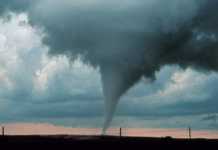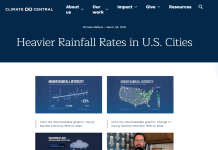Climate activists and their media allies are blasting coffee growers and coffee drinkers for carbon dioxide emissions, while hypocritically promoting false claims that climate change is harming coffee production.
Contrary to media claims that climate change is devastating coffee production, coffee production sets new records virtually every year. At the same time, climate activists and their media allies criticize coffee production and consumption on the basis of coffee’s carbon dioxide emission. If coffee is so bad for the climate and environment, why do the media attempt to create alarm about an asserted decline in coffee production?
Make no mistake, climate activists detest coffee growing and coffee consumption. For example, a 2019 article in Newsweek asserts, “In the United States alone, we consume 400 million cups of coffee per day. This equates to a lot of waste, not only in the U.S., but also globally. Our friends at Earthday.org recently reported that 16 billion disposable coffee cups are used each year, which are coated with plastic to laminate the inside and also use plastic lids.”
The Newsweek article adds, “Those stats equate to a staggering footprint in the world of coffee, but it doesn’t end there. Let’s start at the beginning of the supply chain. Growing and harvesting beans requires energy and that energy releases a lot of carbon into the atmosphere. … It’s clear that the coffee industry is due for an overhaul with a key focus on reducing the overall carbon footprint and becoming more eco-friendly.”
The Newsweek article addresses only a small fraction of the complaints that climate activists make against coffee.
An article on the Down to Earth website states coffee “generates as much carbon dioxide as cheese and has a carbon footprint … half that of one of the worst offenders — beef. And that’s all before adding milk, which carries its own hefty environmental baggage.”
On the EcoWatch website, an article titled “Coffee’s Invisible Carbon Footprint” asserts, “Think of the environmental impacts of coffee and your mind likely goes to mountains of coffee cherries polluting waterways, piles of leftover grounds, nonrecyclable coffee pods or the paper waste from gazillions of grande to-go cups. Initially, you’re probably not considering milk at all. Milk represents 60 to 70 percent of the carbon footprint of a cup of coffee with a few tablespoons of milk; for a latte, it’s more like 80 or 90 percent. Per cup, black coffee produces 21 grams of CO2; each latte, 340 grams.”
Fortunately, climate activists’ attacks on coffee are little cause for concern, as carbon dioxide emissions are contributing to an improving climate for human welfare and the environment. Nevertheless, the question remains, if coffee is so bad for climate and the environment, why are climate activists constantly trying to drum up false alarm about climate change reducing coffee production? The answer is the Climate Establishment cares little about scientific facts, little about climate change, and a lot about gaining and retaining political and economic power. The proof is in their own hypocrisy and the climate change facts that undermine their asserted climate crises.


















